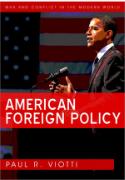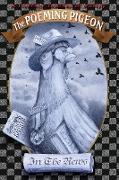American Foreign Policy
BücherAngebote / Angebote:
As the world's only superpower, America's foreign policy inevitably has a major impact - be it positive or negative - on contemporary international affairs. Since the terrorist attacks of 9/11, George W. Bush's decision to move away from multilateral decision-making in favour of a more aggressive, pre-emptive style of foreign policy has attracted widespread debate, and criticism, throughout the world.
In this book, Paul Viotti explores American foreign policy from the founding of the Republic in the late 18th Century to the present day. Part 1 examines the broad policy options available to the US government: namely, peaceful engagement, containment through deterrence or coercive diplomacy, and armed intervention. Part 2 looks at the American experience of foreign policy. By exploring early precedents and elite practices, the moralism of American exceptionalism as well as the roots of an expansionist American foreign policy, the discussion draws out the continuities running through this period. Part 3 concludes with an analysis of the politics of interest on the Potomac, analysing the interplay of contending policy elites, factions and parties influencing foreign policy making today.
In explaining the making and implementation of American foreign policy, the author reminds us that the theoretical challenge is how to connect power, norms and ideas to the policy makers who incorporate them into their practical decision-making. Ideas grounded in understandings of interest driven American foreign policy -- peaceful engagement, he argues, is the most promising course of action for the coming decades.




